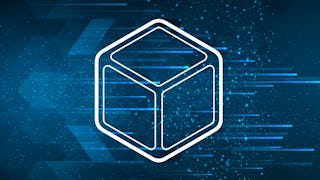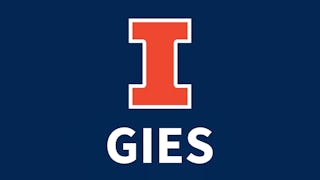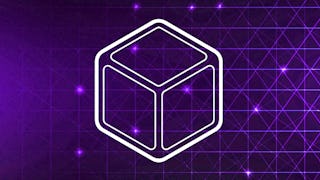Blockchain is an emerging and highly disruptive technology that is poorly understood. In this course you will learn what blockchain is and how it can create value by tokenization in cryptocurrencies and in many other practical applications. The applications include: stablecoins (like Facebook’s Libra and JP Morgan’s JPMCoin), machine to machine payments, identity protection, supply chain management (Walmart, Maersk, IBM), secure voting, distributed exchanges, decentralized finance, property transfers, central bank fiat crypto (e.g., Fedcoin and China’s digital Renminbi), dispensing prescription drugs, private records, intellectual property, financial reporting, and media and advertising, to name a few. The goals of the course are to: (i) provide an advanced understanding of the various blockchain technologies; (ii) determine the specific business situations where blockchain technology can be deployed to solve important problems; (iii) select the specific blockchain technology that has the best chance of success for a particular problem; and (iv) detail the risks presented by this new technology.

Enjoy unlimited growth with a year of Coursera Plus for $199 (regularly $399). Save now.

Blockchain Business Models
This course is part of Entrepreneurial Finance: Strategy and Innovation Specialization

Instructor: Campbell R. Harvey
20,988 already enrolled
Included with
(387 reviews)
Skills you'll gain
Details to know

Add to your LinkedIn profile
32 assignments
See how employees at top companies are mastering in-demand skills

Build your subject-matter expertise
- Learn new concepts from industry experts
- Gain a foundational understanding of a subject or tool
- Develop job-relevant skills with hands-on projects
- Earn a shareable career certificate

There are 8 modules in this course
A helicopter tour of the essential concepts of blockchain - each of which will be detailed later in the course. Blockchain as a technology is defined in terms of the commonalities present in blockchain applications. There is also an introduction to both current and future blockchain applications.
What's included
10 videos1 reading4 assignments
Almost all blockchains use some sort of cryptographic hashing. Hashing is a one way function where any input of arbitrary size can be uniquely expressed as a string of characters. Any change in the input cause the hash to change. Hashing is a one way function: it is easy to go from the input to the hash but extremely difficult to go the other way. As such, cryptographic hashing should not be confused with encryption where an encrypted message can be decoded.
What's included
10 videos2 assignments
Some basic knowledge of encryption techniques is essential for understanding blockchain technology. This module focuses on digital signature algorithms. When a transaction is placed on a blockchain, it is signed by the owner. With the owner’s public information and the signature, we can quickly determine if the signer is really the owner.
What's included
7 videos3 assignments
Bitcoin was the first cryptocurrency and the first large scale use of blockchain technology. This module explores how the bitcoin blockchain works. We detail the mechanics of transactions and there is an introduction to the consensus mechanism called Proof of Work. This provides a foundation to look at other blockchain implementations. We highlight the difference between bitcoin, ethereum and other technologies like Hyperledger.
What's included
9 videos4 assignments
With a knowledge of the mechanics of blockchain technology, students are now able to determine the usefulness of the technology in various different applications. We focus on both the current applications as well as applications that are in process but not yet public.
What's included
6 videos5 assignments
There is no single blockchain technology and there are many ways to implement blockchain technology. The choice of technology crucially depends on the application. In this module, we study Proof of Work, Proof of Stake as well as some other mechanisms. Consensus is an active area of research in the blockchain space.
What's included
7 videos4 assignments
There are thousands of new ventures that are deploying blockchain technology. How do we assess whether these ventures are viable - in the context of either investing for one of these companies or working for them. This module provides a checklist for evaluating cryptoventures. This list includes important questions such as: a) what problem is being solved? b) is the problem an important problem? c) is blockchain the best technology to solve the problem? and d) what type of blockchain technology is best suited to solve the problem?
What's included
9 videos5 assignments
Given this is a new technology, regulators need to both learn about the technology and develop guidelines. The module explores some key regulators in the US such as the SEC and the CFTC and the basic legal background that guides their regulatory framework. We also explore the regulatory concept of the “right touch”: if the regulations are too harsh, then innovation is stifled and driven off shore - if regulations are too lax, then you invite a high level of fraud. The module ends with a general discussion of the future of Fintech, in particular, decentralized finance.
What's included
9 videos1 reading5 assignments
Earn a career certificate
Add this credential to your LinkedIn profile, resume, or CV. Share it on social media and in your performance review.
Instructor

Offered by
Explore more from Finance
 Status: Free Trial
Status: Free TrialINSEAD
 Status: Preview
Status: PreviewUniversity of Illinois Urbana-Champaign
 Status: Free Trial
Status: Free TrialUniversity of Cape Town
 Status: Free Trial
Status: Free Trial
Why people choose Coursera for their career




Learner reviews
387 reviews
- 5 stars
78.09%
- 4 stars
17.78%
- 3 stars
1.80%
- 2 stars
1.03%
- 1 star
1.28%
Showing 3 of 387
Reviewed on Dec 1, 2022
If you want an in depth overview of hashing and how the blockchain really works step by step, look no further. I am happy I ran into this, the professor's teaching is top notch.
Reviewed on May 16, 2021
A perfect way to enter the world of blockchain. Cam is a well-grounded and informed person who can help you navigate through the hype and understand the real value of this technology
Reviewed on Nov 19, 2020
Im very proud to learn with Mr. Harvey, the course is wonderful and intense! open your eyes and knowledge for the future with blockchain tech!

Open new doors with Coursera Plus
Unlimited access to 10,000+ world-class courses, hands-on projects, and job-ready certificate programs - all included in your subscription
Advance your career with an online degree
Earn a degree from world-class universities - 100% online
Join over 3,400 global companies that choose Coursera for Business
Upskill your employees to excel in the digital economy
Frequently asked questions
To access the course materials, assignments and to earn a Certificate, you will need to purchase the Certificate experience when you enroll in a course. You can try a Free Trial instead, or apply for Financial Aid. The course may offer 'Full Course, No Certificate' instead. This option lets you see all course materials, submit required assessments, and get a final grade. This also means that you will not be able to purchase a Certificate experience.
When you enroll in the course, you get access to all of the courses in the Specialization, and you earn a certificate when you complete the work. Your electronic Certificate will be added to your Accomplishments page - from there, you can print your Certificate or add it to your LinkedIn profile.
Yes. In select learning programs, you can apply for financial aid or a scholarship if you can’t afford the enrollment fee. If fin aid or scholarship is available for your learning program selection, you’ll find a link to apply on the description page.
More questions
Financial aid available,

